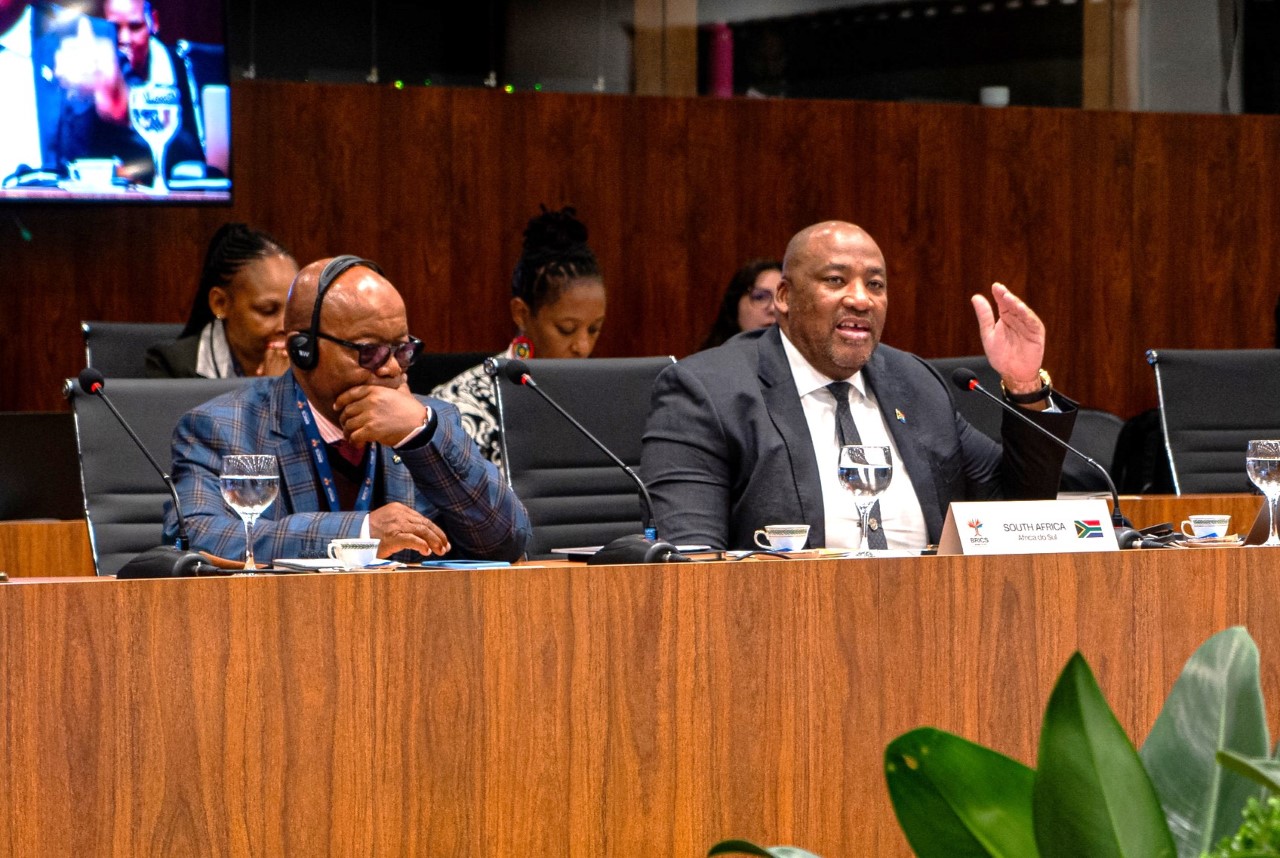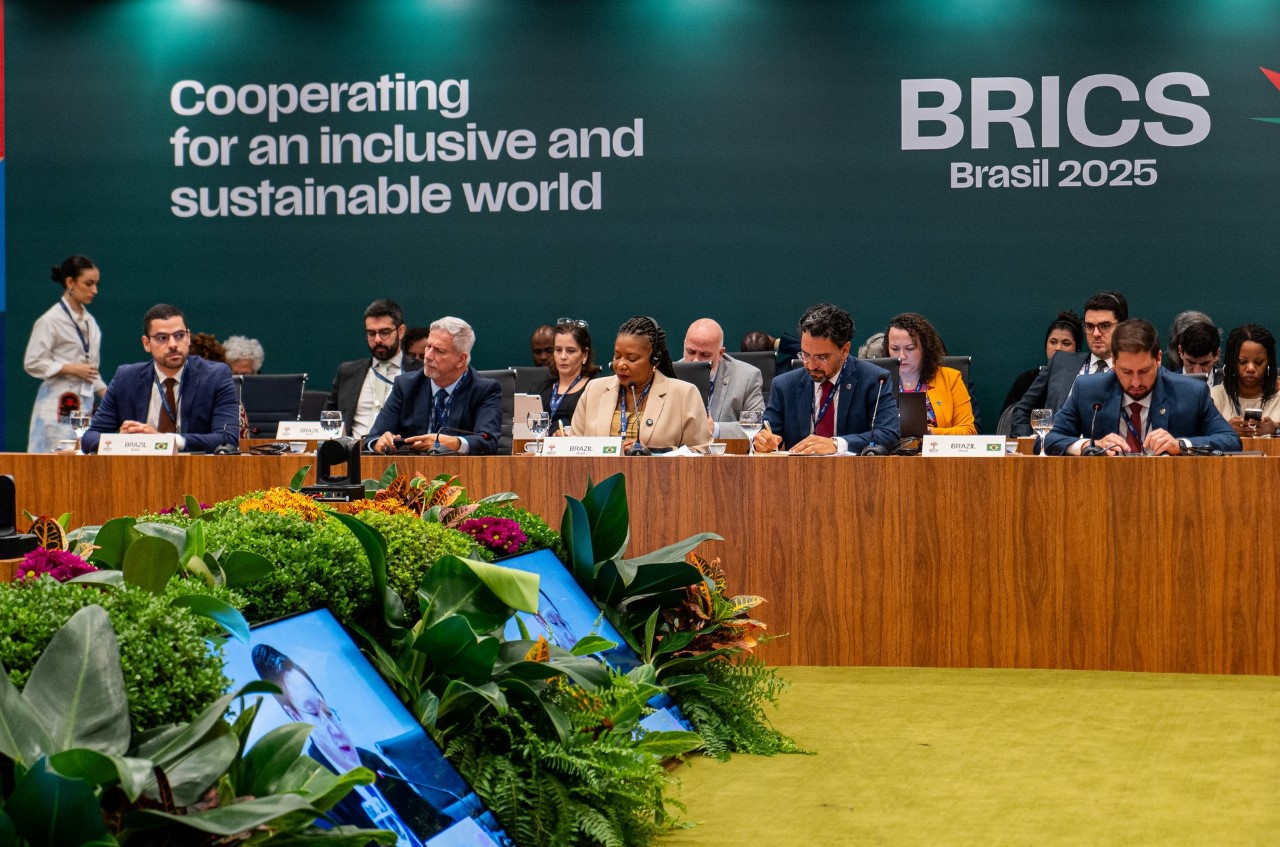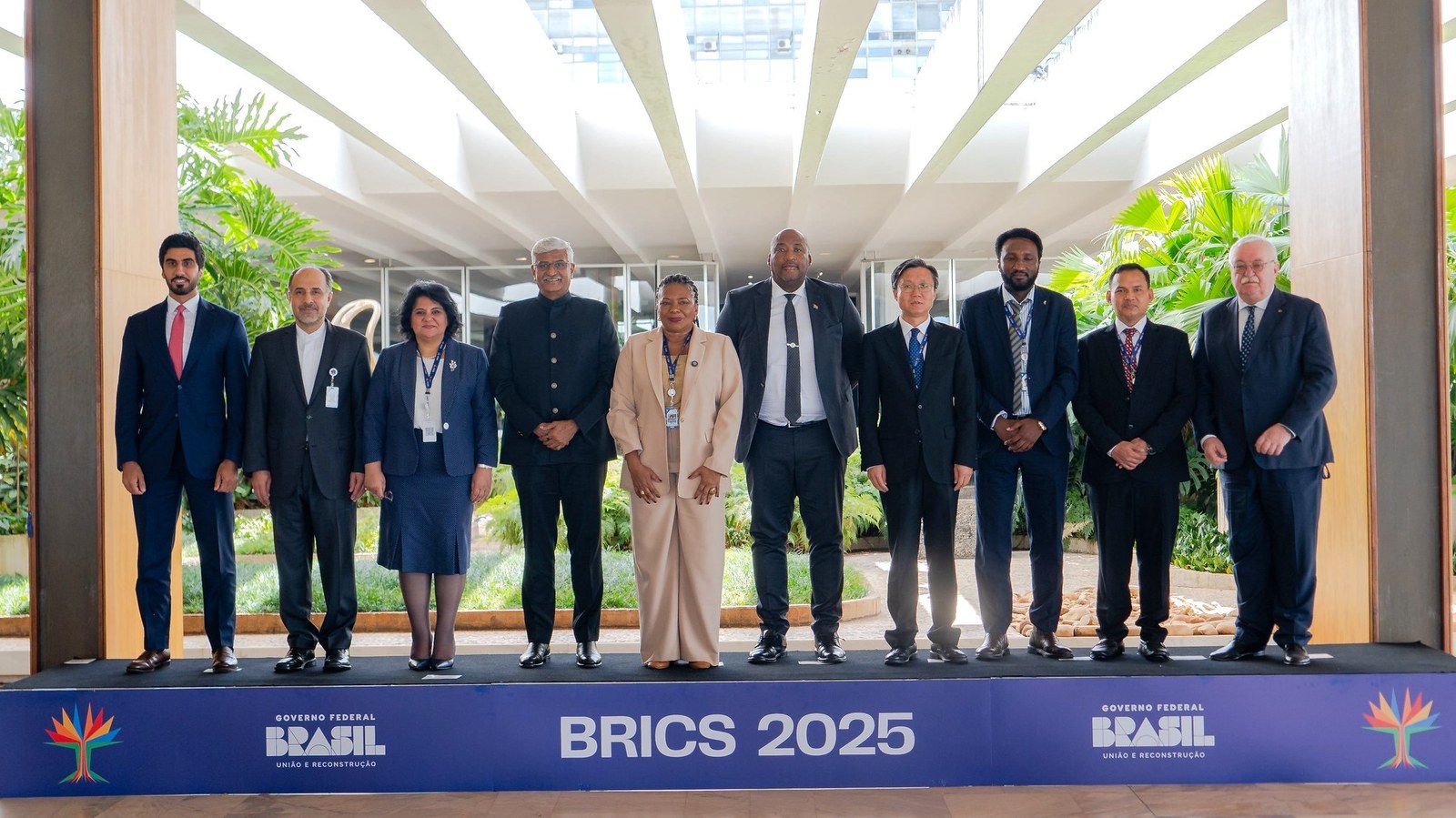The 10th Meeting of BRICS Ministers and Ministers of Culture, held on Monday (26) at the Itamaraty Palace in Brasilia, marked a new chapter in cultural cooperation between the countries of the group with the approval of a joint declaration that reinforces the role of culture as a foundation for a more inclusive, sustainable and multipolar global governance. The document, titled “Brasilia Declaration”, It reflects the consensus reached by BRICS – member countries and the newly incorporated Indonesia – and sets ambitious guidelines for the coming years, ranging from creative economy to cultural heritage protection against climate change.
The Minister of Culture of Brazil, Margaret Menezes, host of the event, opened the work highlighting the symbolism of the meeting take place in Brasilia, a UNESCO World Heritage city, and stressed the importance of the geopolitical moment. “BRICS is not just an economic grouping, but a platform for dialogue that values cultural diversity as a driving force for fairer and more balanced development” he said. She recalled that, under Brazilian president Luiz Inacio Lula da Silva, Brazil has been working to strengthen multilateralism, citing the recent leadership in the G20, the BRICS presidency in 2025 and the preparation to host COP30 in November.
The meeting reaffirmed the BRICS spirit of consensus, mutual respect and solidarity, in line with the commitments made since the signing of the Agreement on Cooperation in the Field of Culture in 2015 and renewed in the 2022-2026 Action Plan. The document emphasizes the need for a constant and expanded dialogue between BRICS members and other countries of the Global South, with a view to strengthening cultural diversity as a basis for sustainable development.The Ministers reiterated the role of culture as an engine of economic growth, innovation and social cohesion. It was also highlighted the intrinsic value of culture in the face of the challenges and opportunities brought by information and communication technologies (ICTs), especially with the advancement of artificial intelligence (AI) tools.
Among the commitments made is the creation of a BRICS platform on cultural and creative industries within the Group’s Working Group on Culture. This initiative seeks to promote the exchange of artists, the development of joint projects and the dissemination of cultural content, with the support of the New Development Bank (NDB). The declaration recognizes that the cultural and creative sector represents a strategic component in generating employment, income and innovative skills, as well as boosting the economy of member countries.
The document emphasizes the need for a constant and expanded dialogue between BRICS members and other countries of the Global South, with a view to strengthening cultural diversity as a basis for sustainable development.The Ministers reiterated the role of culture as an engine of economic growth, innovation and social cohesion
The document reaffirms the need for AI to be ethical, safe, inclusive and development-oriented, respecting national and international legislation, human rights and cultural and linguistic diversity. In this regard, ministers emphasized the importance of data sets used in training AI models, including language models, reflecting and preserving this diversity. In addition, they advocated a fair digital environment that adequately remunerates creators, artists and copyright holders, ensuring the protection of intellectual property and artistic freedom.
The issue of the repatriation of cultural property stolen or taken from their countries of origin in colonial and conflict contexts also occupied a prominent place in the declaration. The ministers reaffirmed that the return of these collections is a moral imperative and a condition for historical justice. Brazil announced that it will host an international seminar on the subject in 2025, bringing together experts, governments and civil society to advance common guidelines. “Restitution is not just a symbolic act, but a fundamental step towards rebuilding the collective memory of peoples who have had their heritage looted” Margaret said.

Amid the debates on cultural cooperation at BRICS, South African Minister of Sports, Arts and Culture Gayton McKenzie highlighted the importance of the restitution of cultural goods. For him, the return of artifacts looted during colonial periods transcends the financial dimension, being an imperative of dignity and historical justice. The position of the minister reflects the growing articulation between the countries of the Global South around the defense of their cultural heritage and the strengthening of their creative economies, themes that gain prominence in the BRICS agenda. “The reason this is important to us is not limited to the financial aspect of bringing back the stolen artifacts and goods from our country. It has to do with dignity”, he said.
Another relevant aspect of the declaration was the recognition of culture as a key element in the global sustainable development agenda.The ministers affirmed the commitment to work towards the inclusion of culture as an autonomous goal in the future Post-2030 Development Agenda, in line with the principles of the UNESCO World Conference on Cultural Policies and Sustainable Development (MONDIACULT 2022). The relationship between culture and climate change was also highlighted. BRICS countries have committed to protecting cultural heritage from climate-related risks by developing adaptive strategies that take into account traditional knowledge and local knowledge systems. In this regard, ministers urged developed countries to meet their climate finance commitmentsespecially with regard to the preservation of the cultural heritage of developing countries.
The protection of traditional knowledge and traditional cultural expressions was also the object of attention. The participants called for the strengthening of the international legal protection of this knowledge, highlighting the importance of ongoing discussions in the World Intellectual Property Organization (WIPO) on the subject.
The strengthening of cultural ties between BRICS countries will also materialize through the holding of festivals and cultural alliances. Brazil announced the holding, in the second half of 2025, of the BRICS Film Festival, which will bring together national film productions from member countries, promoting cultural exchange, mutual understanding and business opportunities in the audiovisual sector.In addition, the ministers encouraged the formulation of a permanent calendar of cultural and heritage events, which will strengthen connections between the BRICS peoples.

In the end, the declaration reaffirms the shared vision that culture is not only an essential element for strengthening national identities, but also an instrument for economic development, promoting environmental sustainability and building a more just and inclusive world. In this regard, the BRICS Ministers of Culture renewed their commitment to deepen cultural cooperation and to articulate common positions in multilateral fora, always valuing the perspectives of the Global South and the plurality of paths for sustainable development.
During the meeting, Ambassador Laudemar Goncalves de Aguiar Neto, Secretary of Trade Promotion, Science, Technology, Innovation and Culture of Itamaraty, reinforced the vision of BRICS as a transforming agent of the global order. “We are not here only to integrate ourselves into the international system, but to contribute to a new governance, more representative of the Global South” he said. He highlighted the creative economy as a vector of social inclusion and advocated that culture be recognized as the “fourth pillar” of sustainable development, alongside the economic, social and environmental dimensions.
As concrete guidelines, in addition to the BRICS Film Festival scheduled for the second half of 2025, the countries agreed to develop a guide to good practices for copyright protection in the digital environment and the expansion of existing sectoral alliances, such as the networks of museums, libraries and film schools of the group. The declaration will be formally presented at the BRICS Leaders Summit in July, where presidents and prime ministers of member countries are expected to endorse the guidelines approved by culture ministers.
At the close of the meeting, Minister Margaret Menezes celebrated the collaborative spirit that marked the debates. “This statement is proof that when we unite our voices, culture can be a powerful force for peace, justice and social transformation” he said. The meeting made it clear that, in a world marked by multiple crises, BRICS bets on cultural diversity not as a difference to be overcome, but as a foundation for a shared future.

